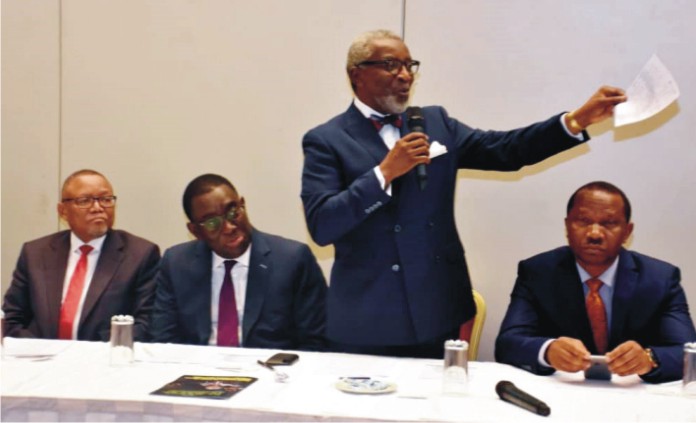Business
AfDB Spends $2bn To Train 6m African Scientists

The African Development Bank (AfDB) says it has committed $2 billion to the education and training of six million science students in Africa from 2005 to date.
A statement by the bank’s Communication and External Relations Department yesterday in Abuja, said the AfDB’s president, Dr. Akinwumi Adesina, disclosed this at the Tokyo International Conference of African Development (TICAD) in Japan.
Adesina said the bank was strongly supporting Africa to train and develop the next generation of scientists.
“Since 2005, we have provided financing of over two billion dollars to support education; this has provided education opportunities for six million students.
“We are proud of our investment in supporting the establishment of the Regional Center of Excellence in Kigali, in conjunction with the Carnegie Mellon University, which is providing world class Masters degree training in ICT.
“I am delighted that all the students that have graduated from the university have 100 per cent employment, including setting up their own businesses.
“The bank has supported the establishment of ICT digital parks in Senegal and Cape Verde.
“We are working with the Rockefeller Foundation, Microsoft, Facebook, LinkedIn and Safaricom to establish coding centers in several countries” he said.
Adesina thanked the Government of Japan for its strategic partnership with the bank in promoting science and technology in Africa.
He said the bank supported the establishment of the Egypt-Japan University of Science and Technology in Egypt, the Jomo Kenyatta University of Agriculture and Technology, and the African University of Science and Technology in Nigeria.
According to him, in partnership with Japan, the Education for Sustainable Development in Africa (ESDA) has supported inter-university partnerships between eight African and four Japanese universities.
He added that the Japan Africa Dream Scholarship Programme between the AfDB and Japan had supported African students to study in diverse fields of specialisation, including energy, agriculture, health, environmental sciences and engineering.
He said the collaboration also promoted university-industry partnerships.
“We greatly appreciate the support of the Government of Japan for the Science, Technology and Innovation Forum.
“As we look toward the future, I would like to suggest seven key areas to prioritise on Africa’s drive in science and technology.
“Africa must establish more universities of science and technologies, especially regional centers of excellence and ensure they are very well funded.
“There’s an urgent need to increase the share of GDP that is devoted to science and technology to help Africa boost its competitiveness.
Transport
Automated Points Concession : FAAN Workers Gave 72hrs To Revise Decisions In PH

Transport
FAAN Announces Pick-Up Points for Go-Cashless Cards

Business
Fidelity Bank To Empower Women With Sustainable Entrepreneurship Skills, HAP2.0
-
Politics3 days ago
2027: NIGERIANS FAULT INEC ON DIGITAL MEMBERSHIP REGISTER DIRECTIVE
-

 Environment3 days ago
Environment3 days agoLAWMA Director Says Sweeping Reforms Have Improved Waste Collection
-
Politics3 days ago
LP Crisis: Ex-NWC Member Dumps Dumps Abure Faction
-

 Politics3 days ago
Politics3 days agoUmahi Dismisses Allegations On Social Media, Insists On Projects Delivery
-

 Sports3 days ago
Sports3 days agoAbia Not Sure To Secure continental Ticket
-
Sports3 days ago
La Liga: Yamal Records First Career Hat-trick
-

 Sports3 days ago
Sports3 days agoCity Survive Leeds’ Challenge At Elland Road
-
Politics3 days ago
NATASHA ELECTRIC VEHICLES INITIATIVE IN KOGI CENTRAL

